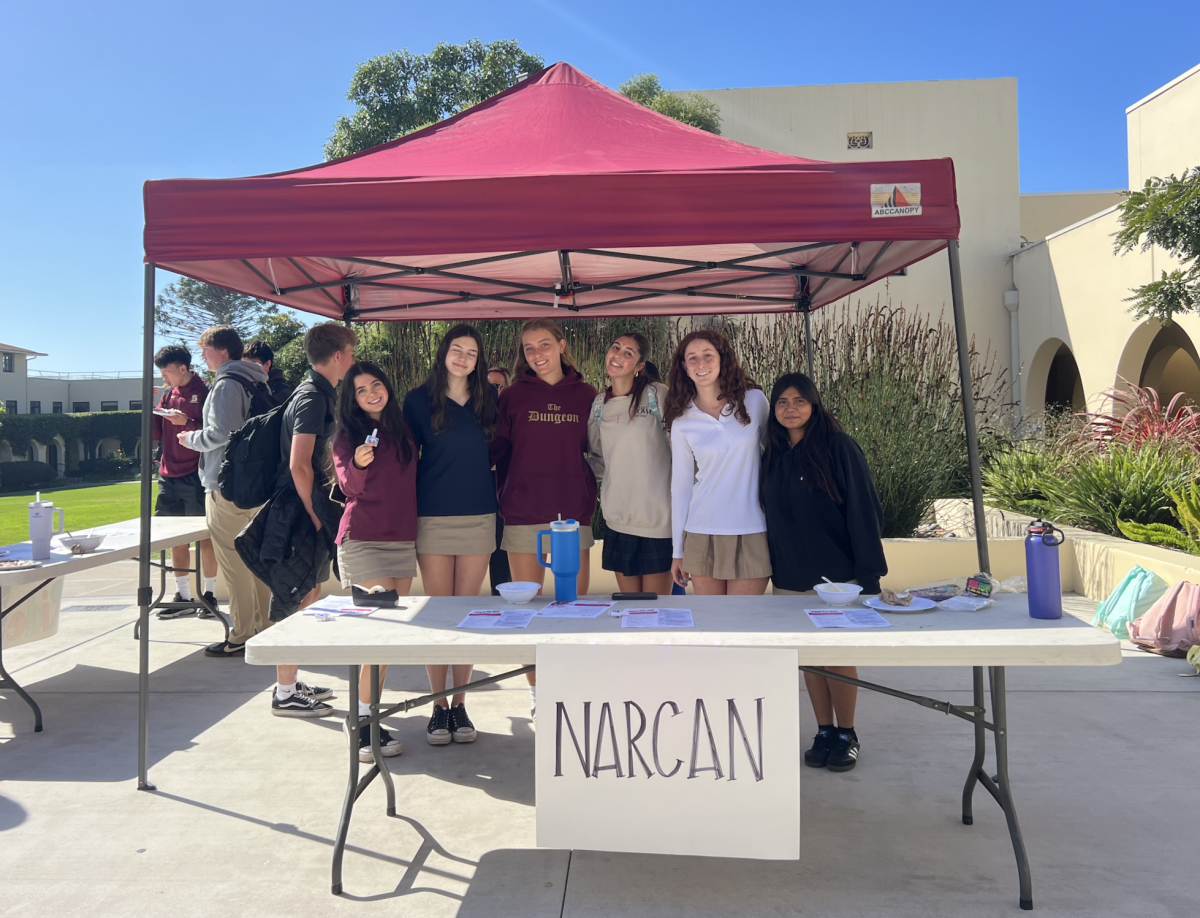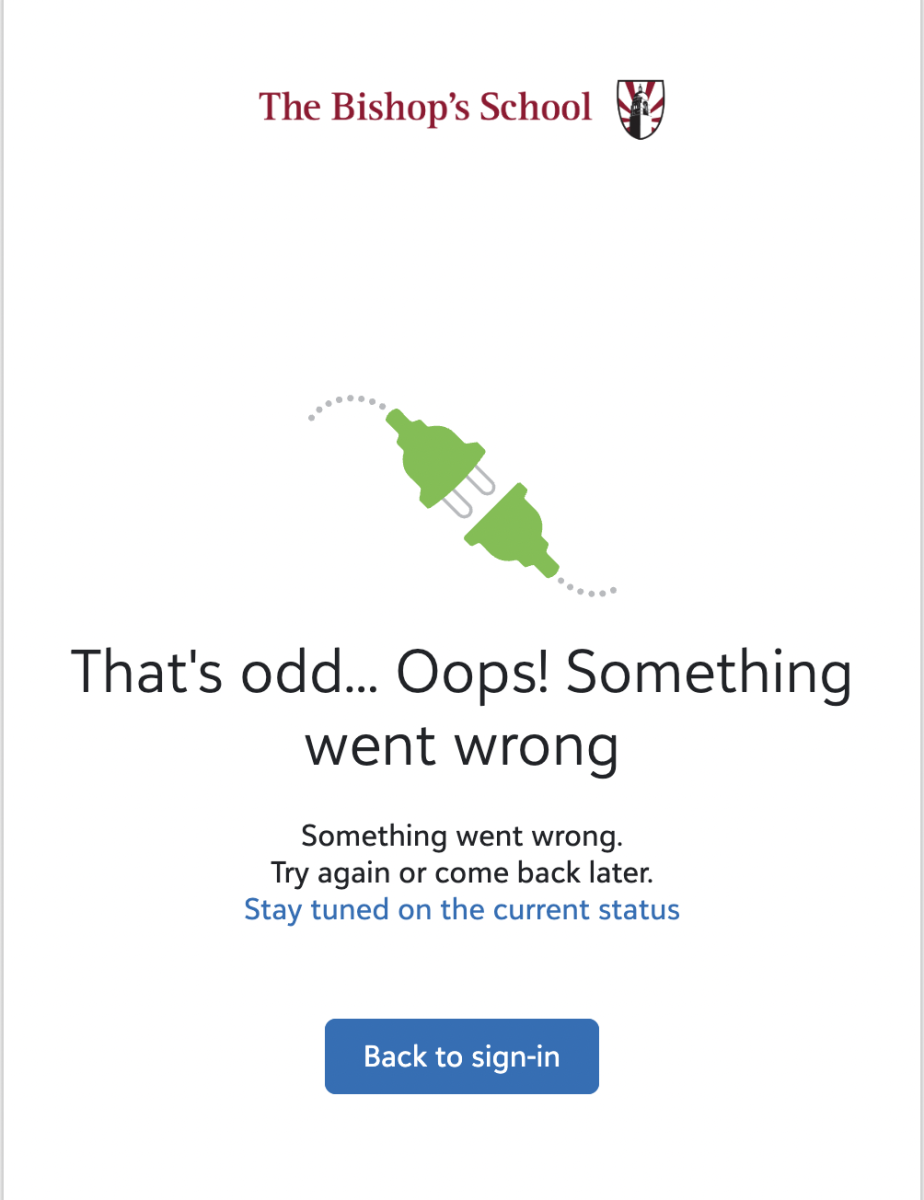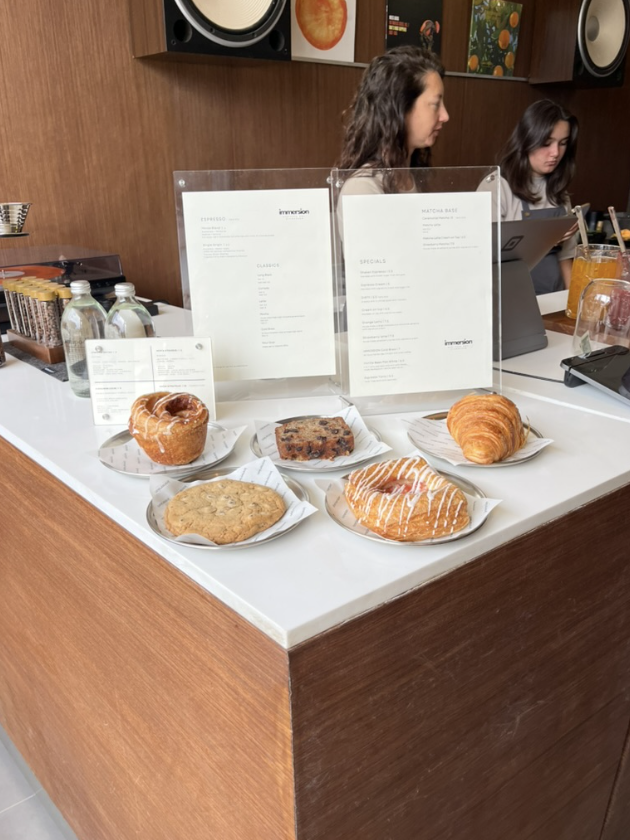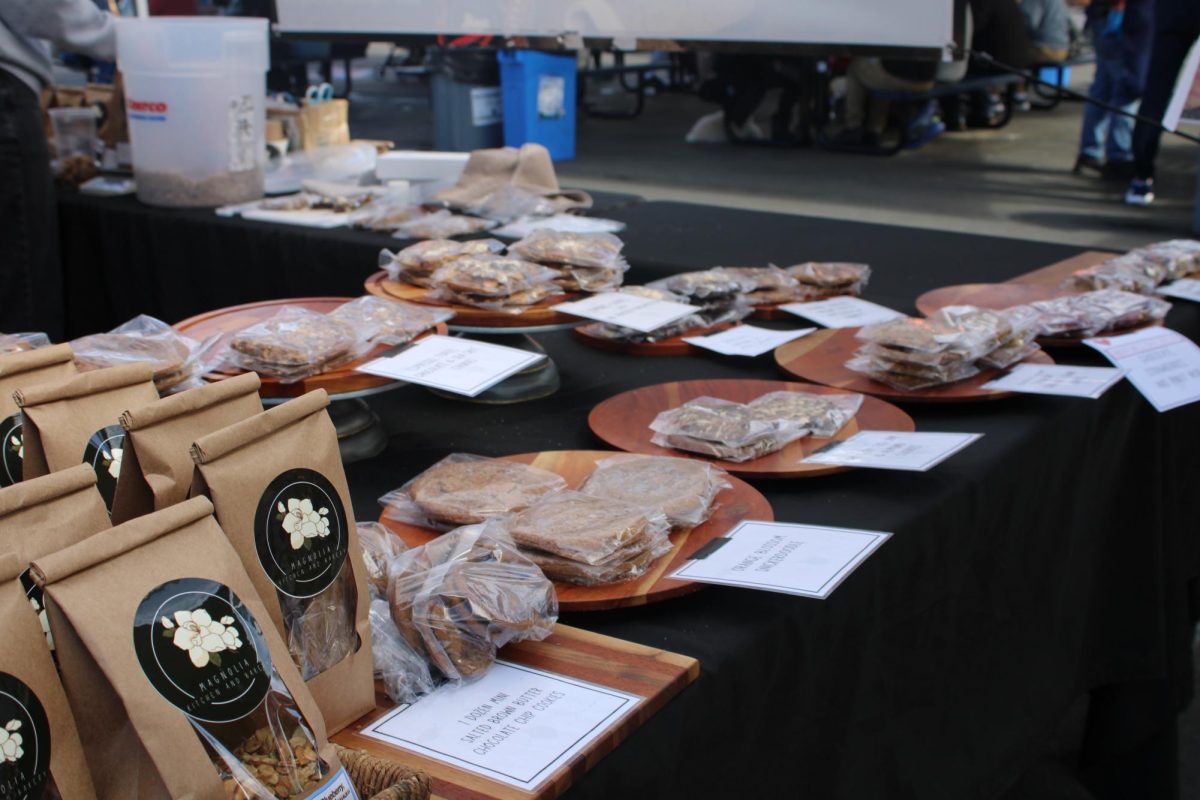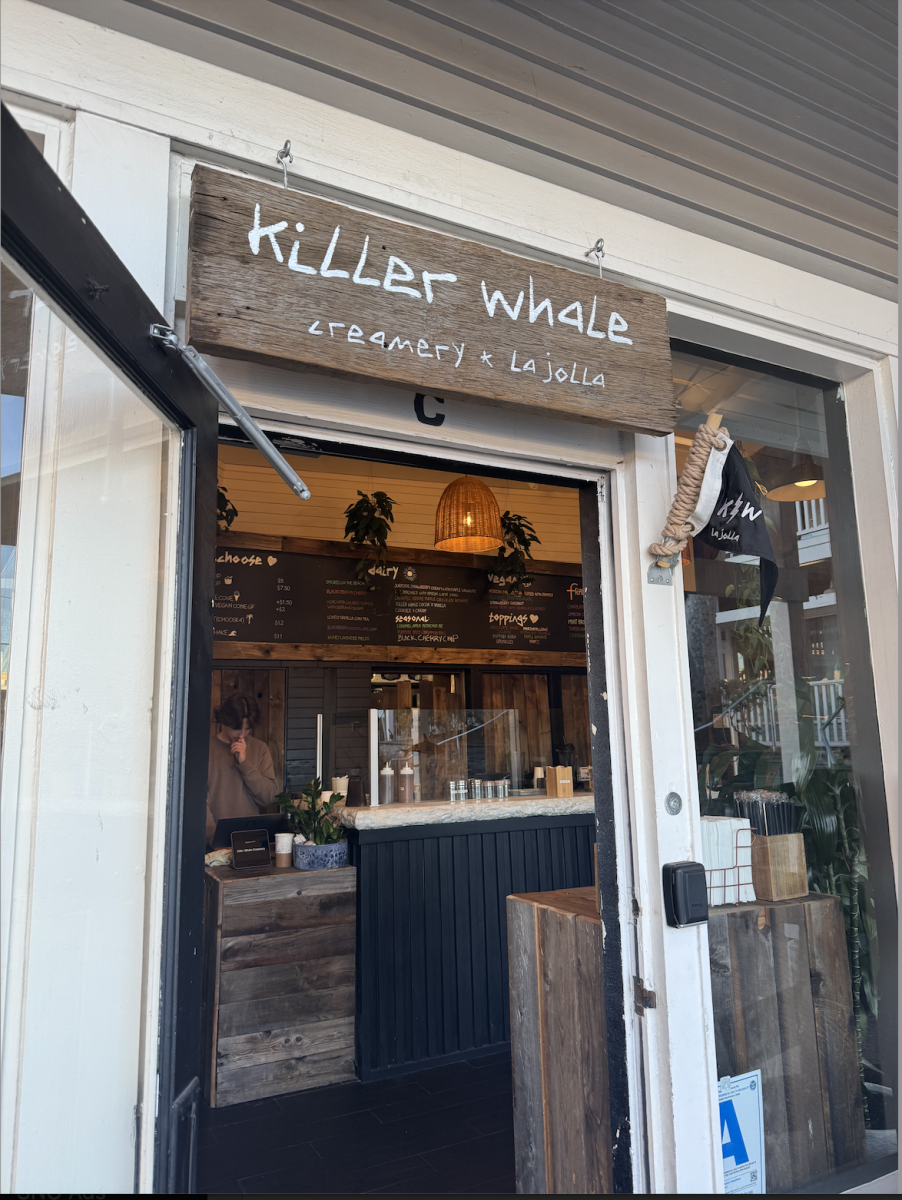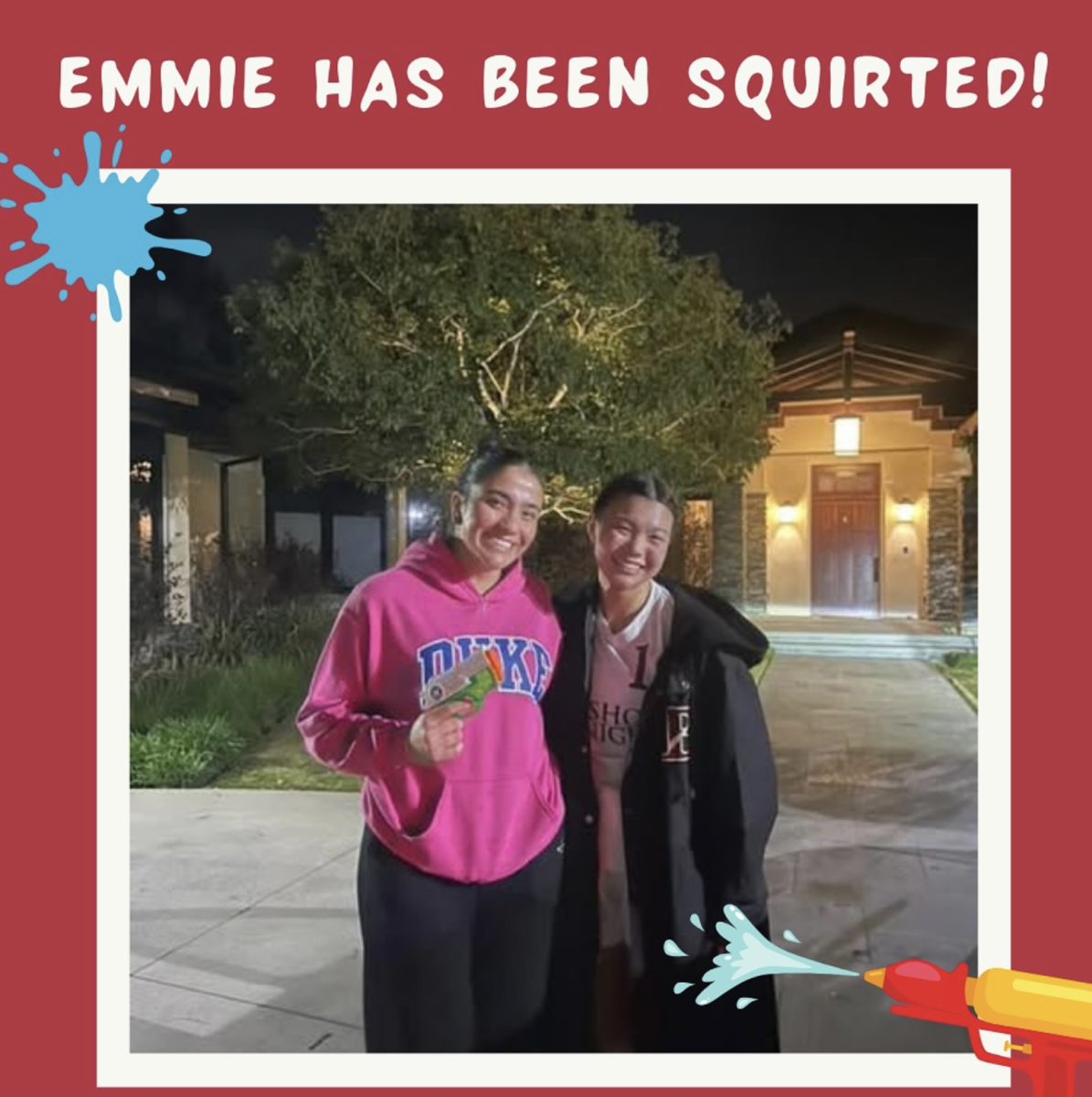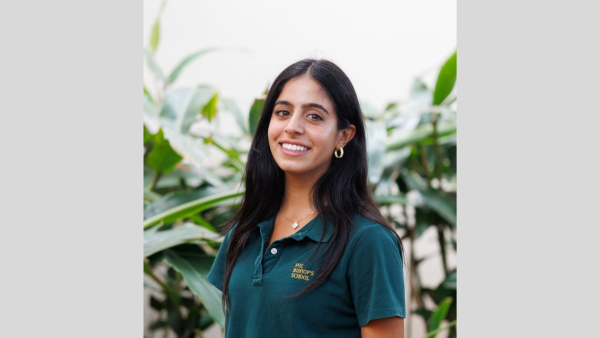When The Reverend Nicole Simopoulos-Pigato first announced a new community partnership during chapel at the end of the 2023-2024 school year, many students didn’t yet know what Episcopal Community Services (ECS) Head Start was, let alone that it would become such an impactful student service program. But just over a year later, the group is thriving — connecting with preschoolers in Chula Vista, supporting families, and showing what can happen when high school students take the lead in building something meaningful.
The start of the relationship between Bishop’s and ECS was two-pronged: English Teacher Mrs. Kara Crawford had already done some volunteer work with ECS and was brainstorming ways she could form a connection between ECS and Bishop’s. Coincidentally, The Reverend Simopoulos and Head of School Mr. Ron Kim had also been exploring the same partnership. So from there, Mrs. Crawford and The Reverend Simopoulos teamed up to make their vision a reality.

“I started working with early childhood education when I was Chaplain at ‘Iolani School in Honolulu,” said The Reverend Simopoulos. “What drew me in was the realization that access to early childhood education is a social justice issue and a basic human right.” When she came to Bishop’s, she saw an opportunity to channel that same passion through ECS. She emphasized, “This program is an expression of our school’s Episcopal identity — our lifelong commitment to love our neighbors, respect the dignity of every human being, and strive for justice and peace for all people.”
ECS Head Start is a student-led group that works with the Head Start preschool located at St. John’s Episcopal Church in Chula Vista. The preschool is a part of Episcopal Community Services (ECS), a nonprofit serving San Diego’s underprivileged areas. Under the mentorship of Mrs. Crawford and The Reverend Simopoulos, students have designed and implemented a series of learning-focused activities and support systems for preschool children and their teachers.
Mrs. Crawford, who is now on the ECS board, explained, “At first, we didn’t work with students in their classrooms, yet. We just toured the preschool, visited empty classrooms, met with staff, brainstormed ideas, and asked: What do you need?”
The question — “What do you need?” — has guided the group ever since. Instead of assuming what would be helpful, students took time to listen to the ways that they could support the teachers in their work. From there, they built their program.
Student volunteers began visiting the preschool. These visits grew into themed days like Book Day, Art Day, and Yoga Day. Behind the scenes, a lot of work went into making those visits meaningful. Students conducted 20 to 30 hours of independent research over the summer on topics like literacy, emotional development, and behavior management, then used that research to design their activities.
Student Leader Chloe Hinder (‘26) focused on behavioral management. “I came to find out that emotional control has strong ties to physical well-being,” she said. This inspired the animal yoga activity she planned for the preschoolers. “It wasn’t just a fun activity, but it also had a clear goal of teaching preschoolers self-control in a playful, age-appropriate way.”
Other students brought different research lenses. Grace Dempsey (‘26), another student leader, dove into early childhood literacy, which helped shape Book Day and the book drive that accompanied it. Leaders Stella McGuinness (‘26) and Gabby Gallus (‘26) designed a streamlined observation checklist, condensing over 80 pages of paperwork into a usable, 1.5-page form. Students could fill out this form after each visit to report their behavior and development progress to the teachers.
“Teachers can’t be everywhere at once,” Stella said. “By observing and noting things like creativity, cooperation, or self-regulation, we’re helping them get a fuller picture of each child.”
This effort is obvious to the kids, who now recognize the Bishop’s students when they arrive. “They get so excited when we walk in,” said another one of the student leaders, Calista Upton (‘26). But just as she has given so much to the students, being part of this program has given so much back to her: “I have learned how to work in a group but also be a leader … there is always an opportunity to step up and lead a certain activity or group, but people have your back and are ready to help at any time.”
Calista’s work has also been focused on the importance of early childhood education and outreach. She is developing a curriculum that other schools could use to start their own Head Start partnerships. “It would include schedules for activity days (yoga day, book day, art day, sow & grow), how often meetings should take place, and the preparation needed before each visit,” she said.
Student Joy Xu (‘26) was first inspired to join the group because of The Reverend Simopoulos’s chapel message. “I had been working with low-income students before, but never with children under five,” she said. “This felt like a new way to keep working toward something I care about.” Over the summer, Joy researched the history of ECS and how many of the children had been born during the COVID-19 pandemic, impacting their early social development. “Now, I’m mentoring another Bishop’s student and guiding her through that same process,” she added.
Joy also helped lead both Reading and Art Days and emphasized the importance of teacher collaboration in planning. “We often meet with teachers and adults like Mrs. Crawford to get insights we wouldn’t think of ourselves. That makes our activities stronger,” she said.
According to The Reverend Simopoulos, this type of student leadership is part of the program’s power. “Students are given real tasks and responsibilities. They feel ownership. And what they discover is that the greatest joy in life often comes from doing good for others,” she said.
That’s exactly what Student Leader Sabrina Feldman (‘26), who leads the club’s recruitment efforts and researches different approaches to learning, has found. “I love working with kids and I wanted to be involved with something that felt personal and real,” she said. “Now, I’ve done research, mentored younger members, and helped lead events.”
One of Sabrina’s biggest realizations came during her summer 2024 research. “I used to think preschool was mostly daycare,” she admitted. “But I learned that so much of it is about learning how to self-regulate, like how to manage your emotions, control your body, and build social skills.”
Student Leader Brad LaDrido (‘26) echoed that sentiment. “Every child is special in their own way,” he said. “And how they act with us isn’t always how they act with their teachers. That’s why the behavioral tracking we do matters. It gives us another layer of understanding.”
In a service club this new, students have had the chance to shape nearly every part of it. “We’re building the infrastructure as we go,” Brad said. “But it’s working because everyone brings something to the table. You need to be a team player, but also self-driven.”
The Sow and Grow gardening project has become a symbol for the program’s philosophy. Students plant seeds with the preschoolers during one visit, and months later, they return to harvest different kinds of vegetables, like lettuce and radishes. They then send the produce home with the kids for their families to enjoy. “It’s this beautiful metaphor for the whole thing,” said Sabrina. “We come back, and we’ve grown. The kids have grown. The program has grown.”
The Bishop’s students’ work hasn’t gone unnoticed. ECS board members recently mentioned the Bishop’s partnership during their meetings, with hopes of expanding it as a model to other organizations. One staff member even said she might use their observation checklist tool to help train new teachers. “They were impressed,” said Mrs. Crawford.
With potential federal funding cuts to Head Start programs across the country, students know that raising awareness is more urgent than ever. So, Sabrina and Brad are currently working on a video project to raise awareness about the importance of Head Start and the risks of federal funding cuts.
During their most recent visit to the preschool, they interviewed various students and filmed students from both schools interacting. “People need to understand that Head Start doesn’t just help kids, but also supports families and improves long-term outcomes like health and graduation rates,” said Sabrina. “It’s one of the best things we all can invest in.”
And for The Reverend Simopoulos, the project continues to be representative of the school’s mission. “Faith isn’t just about belief in God — it’s about action. This program shows students what it means to live with greater purpose. It teaches them that they have the agency to create change and the joy that comes from helping others,” she said.
That idea of a “greater purpose,” defined by Bishop’s as “the dedication to something that brings both meaning and joy to one’s life, and also contributes to a greater good,” is what grounds the ECS program. As outlined on the Bishop’s website under “Episcopal Identity,” the journey to greater purpose involves discernment, discovery, and action. Through ECS Head Start, Bishop’s students are living through that process.
Stella said, “Without programs like Head Start, we’d live in a very different world because pre-school is where we learn how to share, listen, and basic skills like washing our hands.” It is the foundation for everything that comes after.
For students interested in getting involved, the message from all the ECS student leaders is: try it. “You don’t have to be a leader right away,” said Sabrina. “You can just show up to one visit or help with a drive. And if you want to do more, there’s always room to grow.”
And just like the garden beds outside the preschool, the seeds this group has planted through the kids they worked with, the research they’ve done, and the community they’ve built are blooming and continuing to grow. As the program expands, so do its needs for curious, committed students who are ready to dig in and make a difference for years to come!



